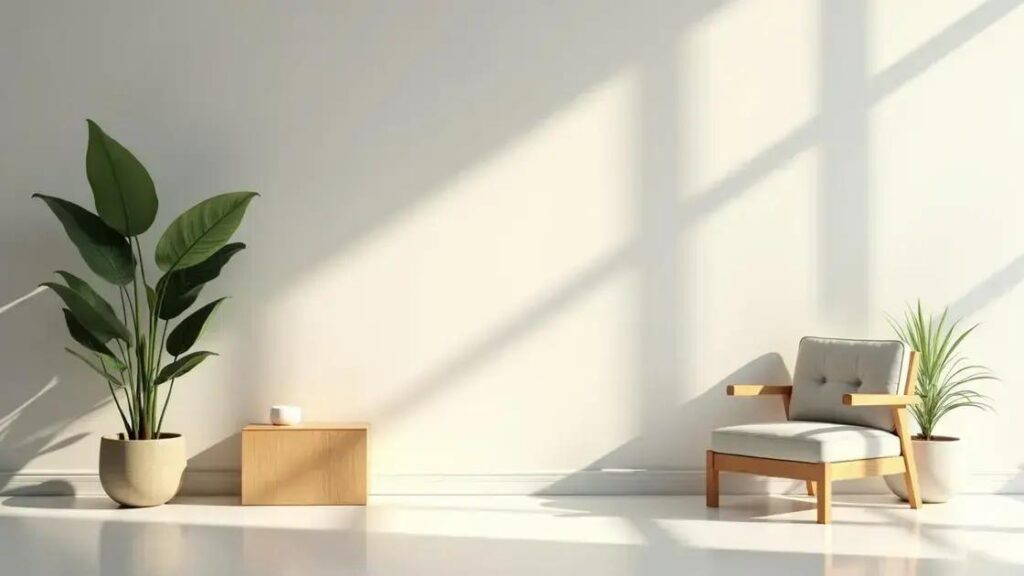Learn how to start a minimalist lifestyle for better mental clarity by decluttering your space, focusing on meaningful items, and practicing mindfulness. Embracing minimalism reduces stress, improves focus, and enhances overall well-being.
Are you feeling overwhelmed by the clutter in your life? How to start a minimalist lifestyle for better mental clarity may be the answer you’re looking for. Minimalism is about simplifying your life and focusing on what truly matters, which can lead to improved mental clarity and peace of mind. In this article, we will explore the benefits of minimalism, practical steps to start living minimally, and how maintaining a decluttered space can enhance your overall wellbeing.
Understanding Minimalism and Mental Clarity
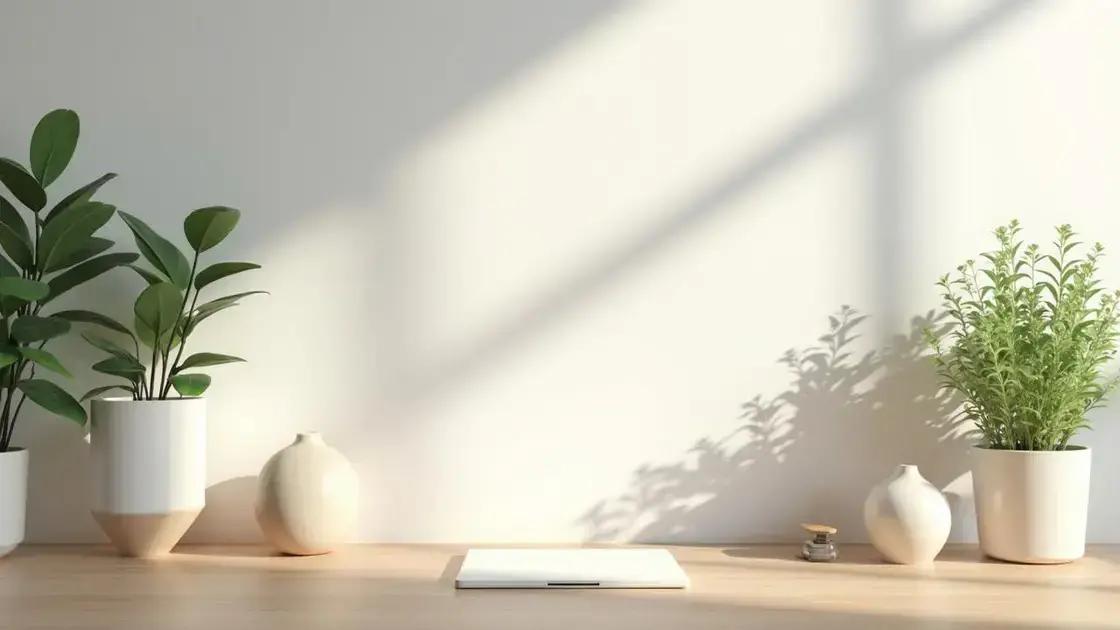
Minimalism is not just about owning fewer things; it’s also about creating space in your mind. Understanding minimalism and mental clarity means recognizing how an uncluttered environment can lead to a calmer state of being.
What is Minimalism?
Minimalism is a lifestyle choice that focuses on simplifying your life by decluttering both your physical and mental spaces. By reducing distractions and excess, you can discover what truly matters to you. This can lead to greater focus and purpose in day-to-day life.
The Connection Between Minimalism and Mental Clarity
A cluttered space often leads to a cluttered mind. When your surroundings are organized and free from unnecessary items, it’s easier to think clearly and make decisions. This mental clarity can help you prioritize your tasks, reduce stress, and enhance your creativity.
Why Mental Clarity Matters
Having mental clarity improves your overall quality of life. It allows you to focus on your goals and aspirations without being bogged down by distractions. People who embrace minimalism often report higher levels of happiness and satisfaction because they allocate their time and energy to what truly matters to them.
How to Cultivate Mental Clarity through Minimalism
To cultivate mental clarity, begin by assessing your living space. Identify items that do not serve a purpose or bring you joy. Additionally, consider your digital space. Unsubscribe from unnecessary emails and organize your files. Making both your physical and digital environments minimal can greatly enhance your focus and mental wellbeing.
Benefits of a Minimalist Lifestyle
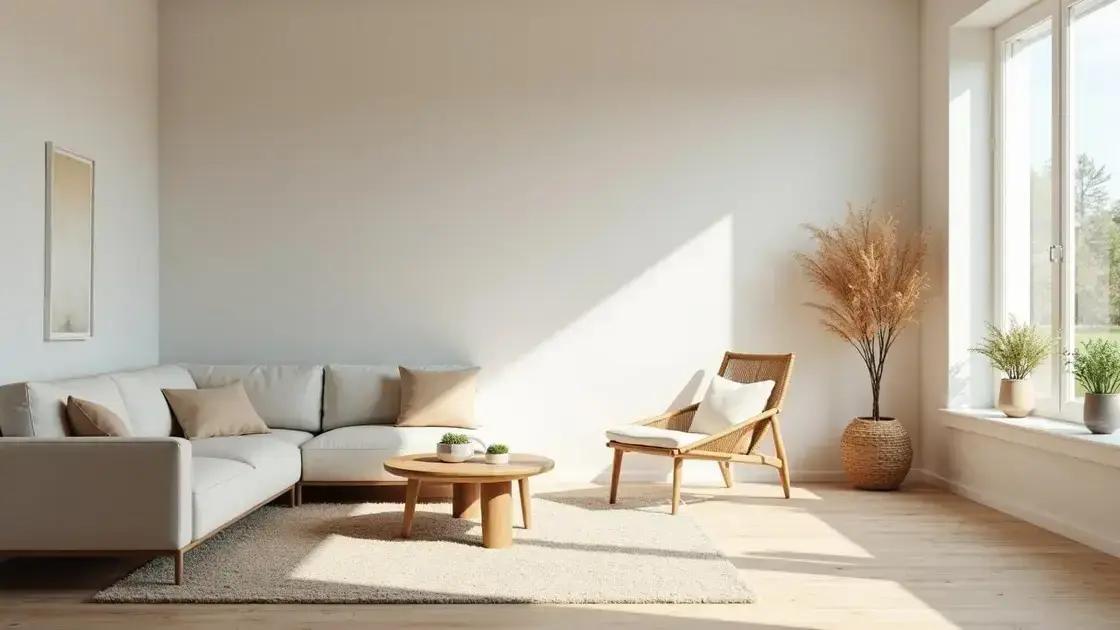
Living a minimalist lifestyle comes with many benefits that improve your life quality and personal satisfaction. Let’s explore some of these advantages.
Reduced Stress and Anxiety
A minimalistic approach helps eliminate clutter, which can be a source of stress. When your environment is clean and organized, it creates a more peaceful atmosphere. Fewer distractions can lead to a calmer mind, reducing anxiety and enhancing your overall sense of well-being.
Increased Focus and Productivity
With fewer possessions and distractions, you can concentrate better on your tasks. A minimalist lifestyle encourages you to prioritize important activities, leading to improved productivity. You’ll find yourself able to focus on the work that matters most, allowing you to achieve your goals more effectively.
Financial Freedom
Embracing minimalism often leads to better financial habits. By purchasing only what you truly need, you can save money and reduce unnecessary expenses. This can allow you to invest in experiences and activities that bring joy, rather than accumulating more things.
Improved Time Management
When you simplify your life, you spend less time cleaning, organizing, and maintaining your belongings. This free time can be redirected toward meaningful activities such as hobbies, exercise, or spending quality time with family and friends. Consequently, you create more fulfilling experiences.
Enhanced Personal Growth
Being a minimalist can encourage self-reflection and growth. By letting go of material possessions and distractions, you create space to explore your values and what truly brings you happiness. This allows you to focus on personal goals and aspirations, fostering a deeper understanding of yourself.
Practical Steps to Begin Minimalism
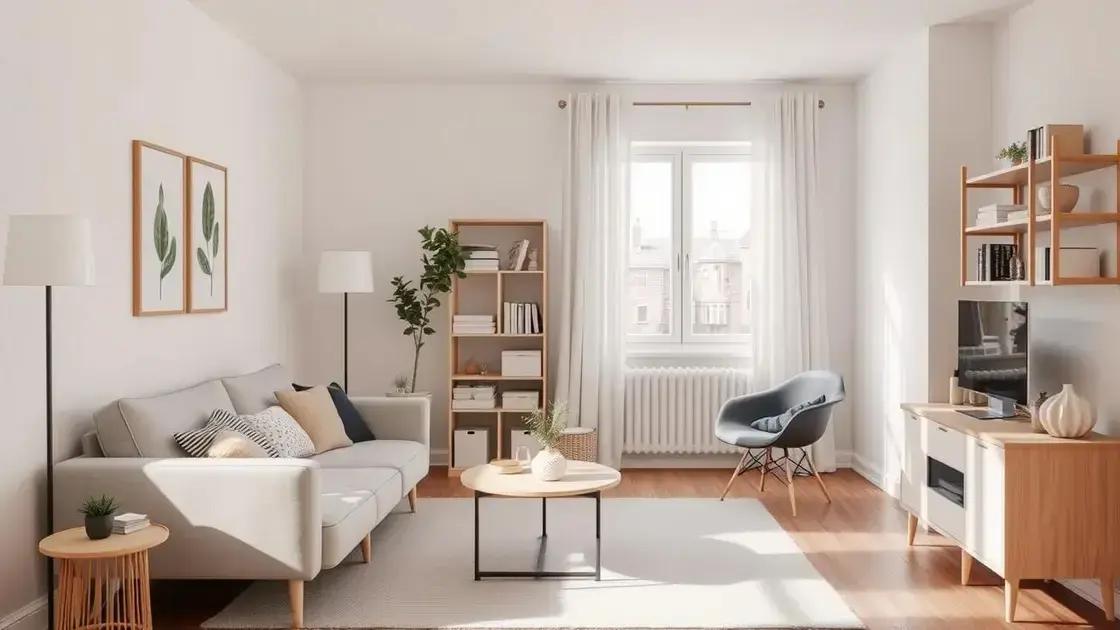
Taking the first steps toward a minimalist lifestyle can seem daunting, but it can be quite simple. Here are some practical steps to help you begin your journey into minimalism.
1. Start Small
Begin with one area of your home. Pick a small closet or a single drawer to declutter. By focusing on a manageable space, you avoid feeling overwhelmed and can see results quickly.
2. Sort and Decide
As you declutter, sort items into three categories: keep, donate, and discard. Ask yourself if each item serves a purpose or brings joy. If not, it may be time to let it go.
3. Create a Decluttering Schedule
Set aside time each week dedicated to decluttering. Consistency is key. Over time, you can tackle larger areas of your home, ultimately leading to a more minimalist lifestyle.
4. Limit New Purchases
To maintain your minimalist space, set rules for new purchases. For example, for every new item that enters your home, consider removing an existing item. This helps keep clutter from accumulating.
5. Simplify Your Digital Life
Minimalism also applies to your digital spaces. Delete old emails, unused apps, and files you no longer need. Organizing your digital life can improve focus and reduce distractions, just like your physical space.
6. Practice Mindful Consumption
Before making purchases, consider whether an item aligns with your minimalist goals. Ask yourself if it will add genuine value to your life. Mindful consumption helps prevent clutter from returning.
Maintaining Mental Clarity through Minimalism
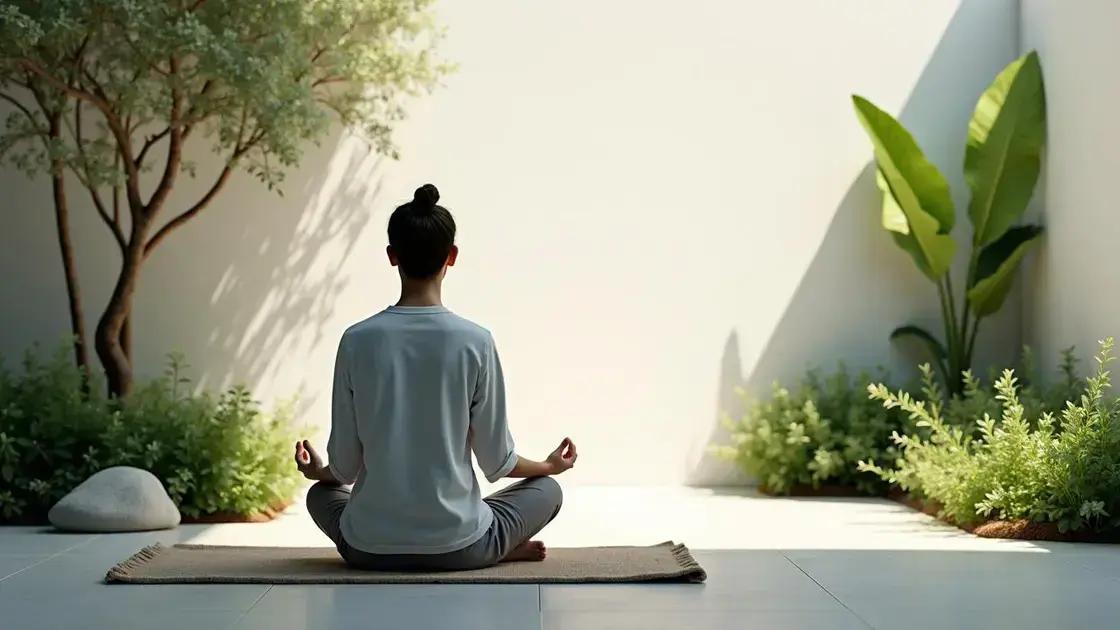
Maintaining mental clarity is essential for a fulfilling life, and minimalism plays a big role in achieving this goal. Here are some ways to keep your mind clear through minimalism.
1. Regularly Declutter Your Space
Make it a habit to declutter your environment regularly. This helps prevent accumulation of unnecessary items, which can distract and overwhelm you. Set aside a few minutes every week to remove things you no longer need.
2. Schedule Breaks and Free Time
Incorporate breaks into your daily routine. Allow space for relaxation and mindfulness. Use this time to reflect and recharge your mind. A clear and rested mind is essential for maintaining clarity and focus.
3. Limit Multitasking
Avoid trying to do too many tasks at once. Focusing on one task at a time can lead to better results and reduced stress. This is a key principle of minimalism that allows you to channel your energy toward what’s most important.
4. Keep Only Meaningful Items
By surrounding yourself with items that add value to your life, you reduce distractions. Everything in your space should serve a purpose or hold personal meaning. This fosters a sense of peace and clarity.
5. Practice Mindfulness
Incorporate mindfulness practices into your daily routine, such as meditation or deep breathing exercises. These practices can enhance your mental clarity by fostering a sense of calm and focus amidst a busy life.
6. Simplify Your Commitments
Evaluate your commitments and choose to focus on those that align with your values and goals. By saying no to unnecessary obligations, you create more space in your life for activities that nurture your mental clarity.
Embracing Minimalism for Enhanced Mental Clarity
Adopting a minimalist lifestyle can significantly improve your mental clarity and overall well-being. By simplifying your environment and focusing on what truly matters, you can reduce stress and anxiety, enhance your productivity, and foster personal growth.
As you implement the practical steps outlined in this guide, remember that minimalism is a journey. It encourages you to regularly reassess your surroundings, commitments, and habits, all while keeping your mind clear and focused.
By continuously maintaining a minimalist approach, you will not only enjoy a clearer mind but also cultivate a more fulfilling and purposeful life.
FAQ – Frequently Asked Questions about Minimalist Lifestyle
What is minimalism?
Minimalism is a lifestyle choice that focuses on simplifying your life by reducing physical and mental clutter, allowing you to concentrate on what truly matters.
How can a minimalist lifestyle improve my mental clarity?
By decluttering your environment and eliminating distractions, a minimalist lifestyle helps create a more peaceful atmosphere, leading to enhanced focus and mental clarity.
What are some practical steps to start living minimally?
Begin by decluttering small areas of your home, sorting items into keeps, donates, and discards. Regularly assess your belongings and maintain only what adds value to your life.
How often should I declutter my space?
It’s a good practice to declutter regularly, setting aside a few minutes each week to reassess your belongings and prevent clutter from accumulating.
Can minimalism help reduce stress?
Yes, living minimally can significantly decrease stress levels by creating a more organized environment and eliminating distractions that contribute to anxiety.
Is minimalism only about physical possessions?
No, minimalism also applies to digital spaces and commitments. Simplifying your digital life and focusing on what matters most in your schedule contribute to a clearer mind.

